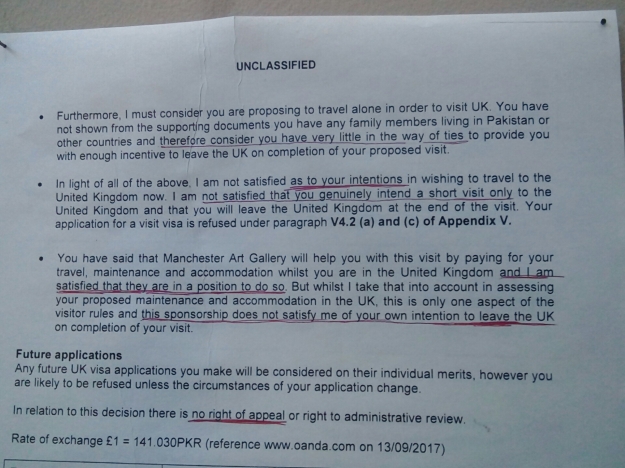Christopher North has said: To me the ten most annoying utterances from the lectern at a poetry reading are:
1. Have I got time to squeeze in a short one?
2. Now let me see if I can find it…
3. Now if I can just get this thing to work…
4. This is one I wrote on the way here…
5. We were asked to write a villanelle…
6. I know it’s here somewhere…yes. Oh no erm let me see…
7. How long have I got?
8. It’s a load of rubbish but I read it anyway.
9. So all you need to know is that a ‘squawk bogger’ is a New Zealand newt, and that ‘ramping in the dolditts’ is an expression used by Romany folk from the Upper Silesia referring to their annual bean throwing festival, and that Durnstadt-terminum is a Village in Bavaria where they make clay pipes – well you’ll see what I mean when I…
10. (Already 15 minutes over allotted time) – ‘…and here’s one that I have to read. It came about after my son’s first session in Rehab – he’s out now and all seems Ok, Hooray! Hooray! And it’s an important poem for me because it was like a coming to terms emotionally with …blah blah blah.
(in an interview with William Oxley in Summer 2014, published in Acumen, September 2014)
I can tick all of these of on my list of readings that I have attended!

Christopher, who owns the Old Olive Press (Almàssera Vella) in Relleu, Spain is a published and prize-winning poet. His first pamphlet A Mesh of Wires (Smith/Doorstop) was shortlisted for the 1999 Forward Prize. Oversteps Books Ltd published two collections Explaining the Circumstances (2010), The Night Surveyor (2014) as well as a joint bilingual collection with Terry Gifford: Al Otro Lado del Aguilar (2011). His pamphlet Wolves Recently Sighted was published by Templar in 2014.

The Old Olive Press (Almassera Vella)
It does add a special quality to being on a writing week at the Old Olive Press when your host is himself a poet. We were delighted to learn that Christopher is one of the four winners of the annual Poetry Business pamphlet competition. His collection The Topiary of Passchendaele will be launched at the Wordsworth Trust on 22 September this year. The title poem has just been awarded the 3rd prize in the 2018 Poetry on the Lake competition. With Christopher’s permission I’m publishing three poems of the new book below:
Last Word
In 1997 it was calculated that that there are fifty languages on the planet with only one speaker still alive. By 2015 there were just eight.
Lost in distant steppes
of somewhere to the East
there is a bank of evening primrose
beside a mud road with
a centre strip of mayweed,
hardheads smelling of pineapple.
The man at the window
has no word for pineapples.
He has a word for the ‘Via Lactea’,
that nightly glows above his roof.
It is similar to his word
for the blur caused by a stone or rain
hitting a puddle of clear water.
He had a word for evening primrose
but has forgotten it;
now they are nothing more
than his word for ‘flowers’.
The flowers have no words.
They only know their mechanisms:
their stretching upwards
their brief flare
and then a falling back to earth.
Sometimes a jet roars across the sky
leaving a tracer line that fades slowly.
He has never had a word for that.
From an Armchair
Beyond the range of the King’s photographer
the forest of the meteorite
and its star of blasted pines;
beyond the islands of the Gulag
and the road of bones through endless forest
where winter is norm, lives pass unrecorded,
epics unfold their progress in silence,
towns work through unknown narratives —
all outside the great conversation;
beneath sky-scapes lashed with stars
and the unfolding green of borealis;
through Sakha, Yakutsk and ice crushed bridges
lies Omyakon between frozen mountains,
where they say in winter words freeze
as they leave your mouth to fall forgotten in the snow.
They make a tundra littered with gossip,
cries of love, argument and greeting,
speeches and shouts petrified in depths of ice
until one midday when larch are greening
and golden root makes a brief smile at the low sun,
words fall into air as if from a door flung open
to fill the town like birdsong and running water
(From an idea of John Catanach – originally a story from Colin Thubron)
Trestles
Wise is knowing how much
you don’t know, have no conception of.
Unravel ignorance. Cover a trestle
with all those things not known.
The trestle groans, add another,
then more, fill a hall, then an annexe,
spread into the street,
become a neighbourhood,
grow to a city, a region,
a country with unmarked frontiers.
Maintain in a corner, dimly lit,
a timid altar of things you think you know.








